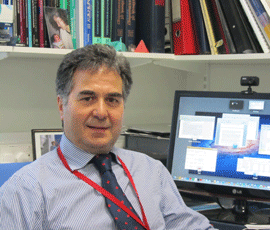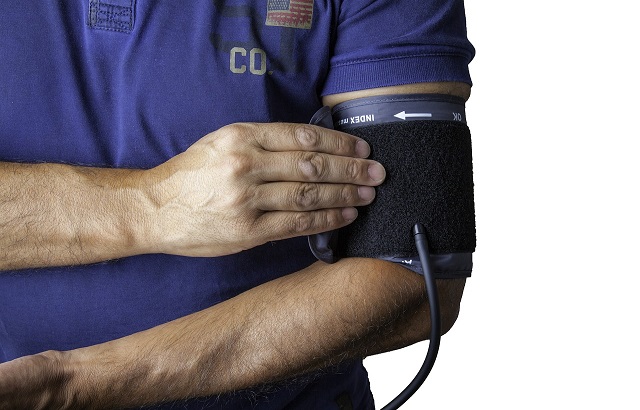New experimental centre for arthritis at QM
Researchers at Queen Mary, University of London are working to develop better therapies to treat people with arthritis.

Professor Costantino Pitzalis
Arthritis Research UK has awarded Queen Mary £225,000 over three years for a new Experimental Arthritis Treatment Centre.
The Centre will be led by Professor Costantino Pitzalis and a research team at Queen Mary. The group will be testing new therapies in clinical trials and analysing the economic impact of using different, less expensive drugs to treat rheumatoid arthritis.
Professor Pitzalis said: “New drugs called biologics have transformed therapy for rheumatoid arthritis with good results in 60 to 70 per cent of cases but poor in 30 to 40 per cent of patients. Moreover, they cost the NHS £160 million a year and it is not known why some patients do not respond.
“We are aiming to tackle this issue by developing more effective, less expensive drugs and examining why biologics are not working for 30 to 40 per cent of patients who are treated with them.”
Rheumatoid arthritis affects nearly half a million people in the UK. It is a chronic, disabling condition in which the body’s immune system attacks the joints. Although newer biologic treatments pioneered by Arthritis Research UK have made a huge difference to patients’ lives, a sizeable proportion does not respond.
Medical director of Arthritis Research UK Professor Alan Silman said: “There’s a real need to do in-depth testing of the benefits and safety of new drugs in small numbers of patients before large scale trials can begin, and our new experimental arthritis treatment centres will provide the resources to study patients in these key first stage studies.”
Through clinical trials, the team at the new centre will use specific markers, or biomarkers, in diseased tissue to identify the impact of biologic drugs upon it. The research will assess whether biomarkers can help to identify patients with severe disease from the outset. By segmenting patients with rheumatoid arthritis and giving them different treatments, the researchers will analyse which are the most effective and economical options.
Professor Pitzalis added: “The research will help us to understand the mechanisms why some patients do not respond to powerful medication and help improve the technology to determine the right medicine for the right patients.
“Our innovative research programme not only aims to establishing the effectiveness of new drugs but also to understand the mechanisms of actions within diseased tissue.”
-- Ends --
Professor Pitzalis is Head of the Centre for Experimental Medicine and Rheumatology at the William Harvey Research Institute, Barts and The London School of Medicine and Dentistry, Queen Mary, University of London.
Arthritis Research UK is the fourth largest medical charity in the UK.
Related items
For media information, contact:


